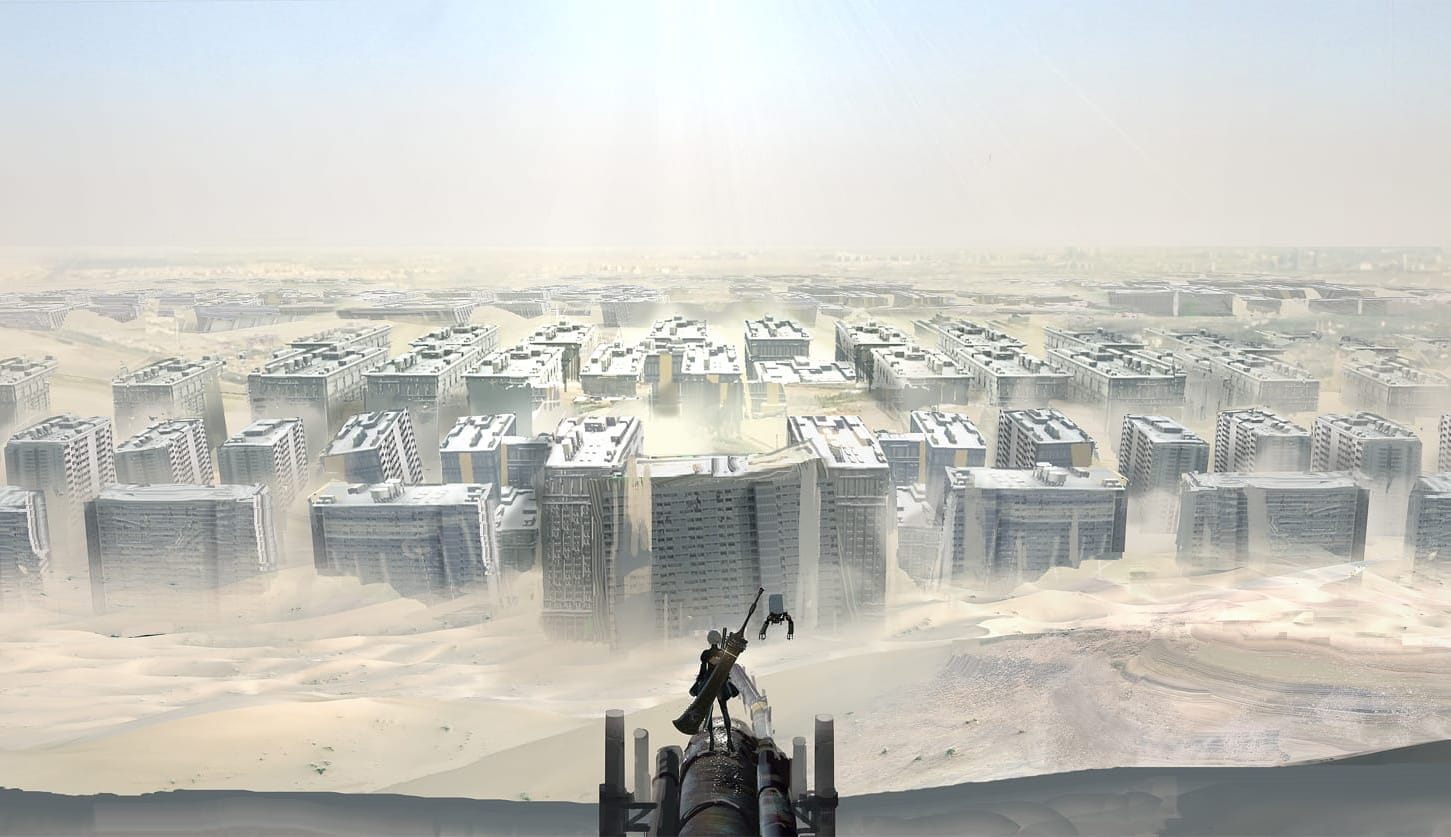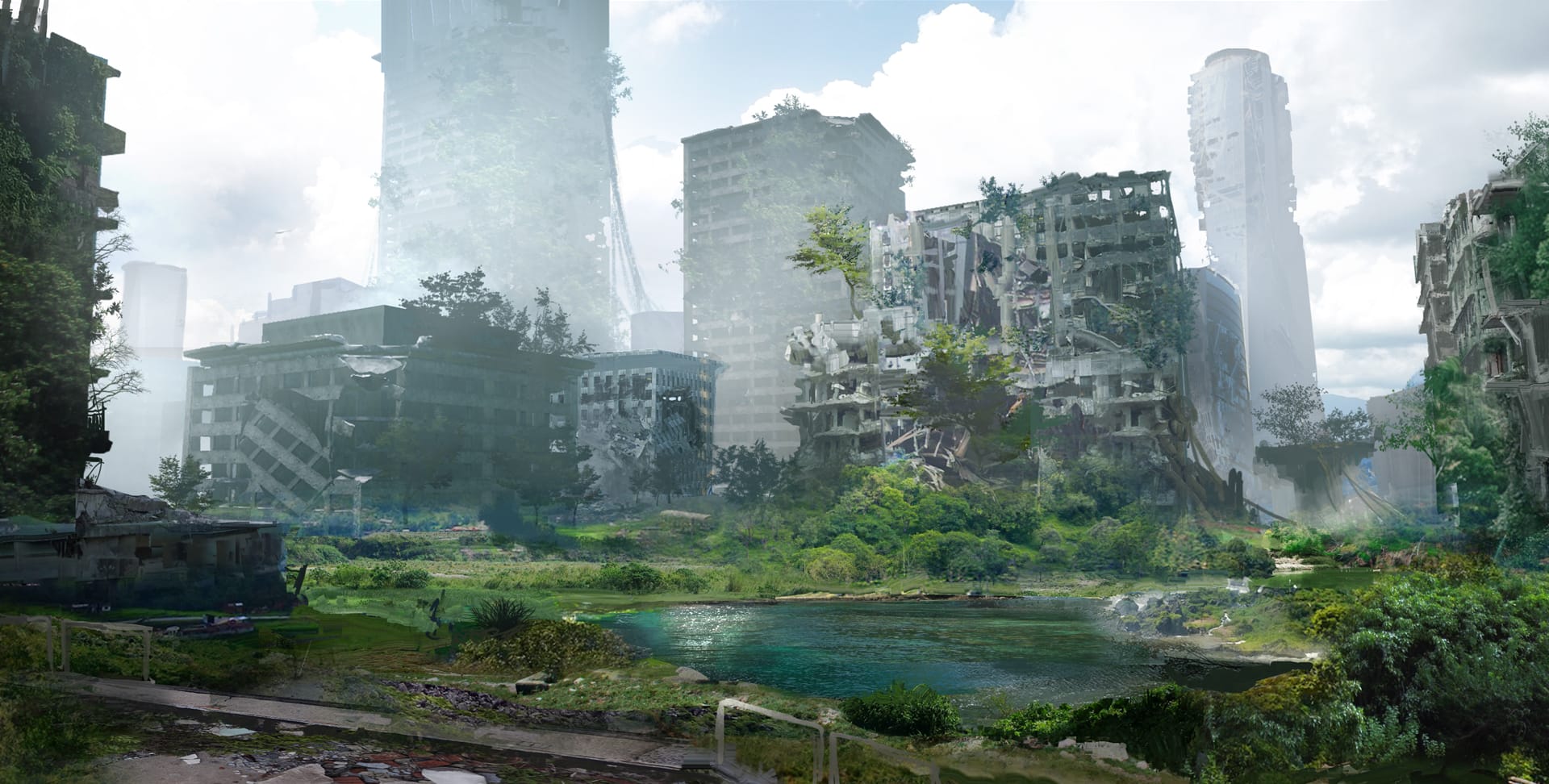Nier Automata Explores “2B or Not 2B” but Doesn’t Provide an Answer
Yoko Taro’s nihilist painting of the future, featuring hope

Nier Automata isn’t a perfect game. Creator Yoko Taro agrees. He even admits that his ideas arrive “on the whim, or in the moment” in an interview with noted behind-the-scenes website Gematsu.
Despite its flaws, Platinum Games’ somber masterpiece made me pause and take notes. While many praise Nier: Automata’s exploration of identity and purpose through the lens of religion and ideals, some criticize it for not exploring them enough. But where others see shallow exploration and subpar combat, I found questions, ones that didn’t necessarily have answers. True, Yoko Taro’s protagonists resort to nihilist rage when they lose who they love. Their descent into lunacy doesn’t quite depict the struggle we find ourselves in as we look for meaning in a broken world. Nier’s attempts at exploring consciousness and religion don’t get to the heart of those discussions either. But it still managed to make an impression.

Nier: Automata searches for meaning in a meaningless world
Its cast of robots takes multiple paths towards finding a purpose and fulfillment. And to pursue their paths, they place their faith in everything from the past to religion, science, and themselves. Even lies.
I won’t deny that I saw shades of myself in some of them.
As they move forward, an increase in awareness and thus power leads to them consuming themselves and those around them. The once-noble quest of fulfillment turns into directionless hunger. Most of these characters become narcissists, placing their faith in themselves as their paths unfold. They believe they are powerful enough to build the world up in their image or tear it down.
Good and evil.
But when the thing they place their faith in no longer exists or has been taken from them, their ideologies crumble. They turn to different emotions to fill the hollow void within them, from grief and fear to vengeance and madness. Even if they manage to find acceptance, they question values that once defined them.
Cue existential dread.
This doomed journey seems inevitable, with a ticking clock out to get you. To those already on the path, self-preservation isn’t a priority until it’s too late.

But when the thing they place their faith in no longer exists or has been taken from them, their ideologies crumble. They turn to different emotions to fill the hollow void within them, from grief and fear to vengeance and madness. Even if they manage to find acceptance, they question values that once defined them.
Fortunately, it offers [A] solution
Nier Automata brings about the death of the author.
Roland Barthes’ groundbreaking 1967 essay suggests that a text’s meaning is not discovered. Rather, it is spontaneously generated in the reader’s mind, where the author’s background or ideals hold no influence. Every time a story is read, a new meaning is born, unique to the reader.
In short, a machete splits the art from the artist.
The game’s hollow ending (not going to spoil it here) is subverted by the player choosing to “kill the game studio” and take their place, forming a new interpretation of an existing creation to share with the world. As you repeatedly lose to the final boss (the game studio themselves), messages from other players who finished the game push you forward. By taking on life’s burdens and sorrows with someone else, struggles weigh less on one’s soul. Being blinded by your own values limits your opportunity to grow.
Questioning another person’s ideas as well as your own helps both parties. Life might still be pointless but by deriving meaning from those around you, your losses can improve your perspective of the world instead of crushing it. In the end, you add a message of your own as you erase your game file, having passed on your story for someone else to reinterpret.
The game doesn’t end on a Shakespeare-worthy tragedy. I’m glad it didn’t.
